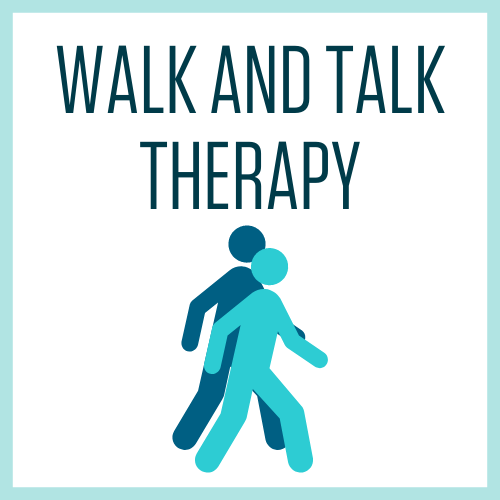Individual Counseling
Student Well-Being offers brief, solution-based treatment to Missouri S&T students.
Schedule a time below using the green button ("Schedule a Screening") to complete a screening with a staff member. During the screening, the staff member will ask you a short list of questions. They will then walk you through the Personalized Care Model, a visual way to help determine what support type is best for you based on your individual needs.
For help scheduling a screening, email wellbeing@mst.edu or call 573.341.4211.
What to expect
How We Can Help
Some common concerns we can assist with:
- Stress management
- Depression and anxiety
- Grief
- Motivation and procrastination
- Relationship and family concerns
- Sleep disturbances
- Future-focused planning
- Conflict resolution
- Assertiveness
- Self-esteem
- Social connections
- Sleep disturbances
- Eating concerns
- Homesickness
- Body image
Some examples of services not available in our scope of care, or when a student would be referred to an off campus resource:
- If a student is needing psychiatric care for medication management
- For a diagnosis of any kind (often for test accommodations, an emotional support animal, or for ADHD)
- Couples or family therapy
- Mandated or court ordered assessments and/or treatment
- For long-term or intensive therapy
- Significant substance use requiring specialized care
- General interest in seeing a provider off campus
- Other specific needs or desires as they arise
In determining whether to offer therapeutic services to a person already receiving similar services elsewhere, the counselor shall consider the treatment issues and the welfare of the client. The counselor shall discuss these issues with the client to minimize the probable risks of confusion and conflict.
Confidentiality
Our counseling staff members and their direct support staff (i.e. front desk) are legally and ethically required to maintain confidentiality. They are NOT Mandated Reporters. This means they are NOT required to promptly report any details they possess in relation to a Title IX or Equity policy violation. Learn more about mandated reporters on the Title IX website. If you would like us to disclose specific information to anyone (e.g. a professor or doctor), we will need your written permission to do so.
Exceptions to confidentiality
- If there is a possibility that you might harm yourself or someone else
- If abuse of a child or vulnerable adult is suspected
- Contact with non-counseling Student Well-Being staff members is not confidential. Non-counseling staff members (such as Case Managers or Health Educators) ARE Mandated Reporters.
Common Misperceptions of Counseling Services
It is important that counseling services are known about and understood fully in order to best support you. Check out some common misperceptions below and the truths behind them.
- "The wait time for individual counseling services is too long."
- "Speaking with a counselor is not confidential and others will know."
- "There are not enough counselors on campus."
- "I can be turned away from counseling services."
- "College counselors are not real professional counselors."
"The wait time for individual counseling services is too long."
The average wait time to be seen for your first counseling appointment is 1-2 days, oftentimes students can be seen in the same day. This first appointment acts as a screening where you will meet with a counselor to determine your needs and what the best next steps will be. If individual counseling is the decided course of action, the average wait time for your next appointment is within one week. During this waiting period, counselors will often provide other resources or services that can support you in the meantime.
"Speaking with a counselor is not confidential and others will know."
Our counseling staff members and their direct support staff (i.e. front desk) are legally and ethically required to maintain strict confidentiality. They are NOT Mandated Reporters, meaning that they are NOT required to report any details they possess in relation to a Title IX or Equity policy violation. The ONLY exceptions to this confidentiality are if a student is in life-threatening danger, is threatening the lives of others, or if there is an immediate safety concern for a child or vulnerable adult. These confidentiality guidelines are state and national laws and are not set by the university.
NO ONE, including other students, staff, or family members, will receive information regarding your appointment(s) without your verbal and written consent to do so.
Outside of the Student Well-Being department, the only other non-Mandated Reporters on campus that interact with students are health care providers in Student Health Services. ALL other employees of the university are mandated reporters and are required to promptly report any Title IX or equity violations. If you are unsure if the staff member you are speaking with is a Mandated Reporter or not, simply ask them before sharing any private or confidential information.
"There are not enough counselors on campus."
According to the Clinical Load Index, a metric developed by the Center for Collegiate Mental Health for assessing college counseling center staffing, Student Well-Being has an ideal staff-to-student ratio. Our staff consists of five full-time counselors, one part-time practicum student/intern, and two support staff. Student Well-Being also has three health educators that meet with students in a non-clinical setting, for wellness consultations, presentations, and more, in addition to housing four non-clinical case managers.
"I can be turned away from counseling services."
Students who are seeking counseling services will always be seen and will work with the counselor or staff member to ensure the best next steps are taken. Individual counseling is brief, solution-focused, and goal-oriented. The number of sessions is determined by the counselor and student, though on average, students engage in 3-4 individual sessions. Participation in support groups of any amount and frequency is not limited. Our goal is to provide availability for as many students as possible who desire our services.
Student Well-Being counselors practice within a scope of care, so there are certain concerns that would be referred off-campus to a provider who can meet their needs. Learn more about our scope of care above.
"College counselors are not real professional counselors."
All Student Well-Being counselors are at least Masters level educated and are fully licensed as either a Licensed Professional Counselor (LPC), Licensed Social Worker (LSW), or Provisional Licensed Professional Counselor (PLPC) in the state of Missouri. The only exception to this is if there is an on-staff Practicum Student, who is Bachelors level educated and is working on completing their Masters degree. Counseling staff follow all state and federal counseling/therapeutic laws and regulations.
Want to meet with a counselor, but don't want to meet in our offices?

Walk and Talk Therapy is a type of individual counseling offered by Student Well-Being. Walk and talk Therapy differs from regular therapy sessions in that clients interact with the counselor while walking outside. This can help change the overall dynamic between client and counselor by using a more casual approach, empowering people to feel more comfortable when discussing difficult or sensitive concerns.
Student Well-Being counseling staff will work with you to ensure your confidentiality is maintained. To learn more about the service or to make an appointment, contact Student Well-Being using the contact information at the top of the page.
Want to talk to a counselor, but don't want to schedule an appointment just yet?

Let's Talk is a program that provides easy access to informal, private conversations with trained Student Well-Being staff at various spots around campus. No appointment or fee necessary. Let's Talk offers resources for concerns, a listening ear from a trained professional, or simply a place to relax and chat. Let's Talk sessions are not confidential as they are in public spaces, with some sessions lead by Mandated Reporters.
Below are the Spring 2026 Let's Talk locations. Sessions are held throughout the entirety of the semester, with the exceptions of any campus closures and holidays. Staff will be available in the listed spaces below from 12:00pm - 1:00pm.
Mondays: Residential Hall rotations (UC/RC/TJ)
Tuesdays: Design Center (SDELC)
Wednesdays: Military and Veterans Services Center (MVSC)
Thursdays: Computer Science Gaming Lounge
Fridays: Student Success Center (with Carrot the therapy bunny!)
Faculty and Staff
Employee Assistance Program (EAP)
The UM System's Employee Assistance Program (EAP), through Optum, is a confidential, professional service provided to all employees, their families, retirees, and organizational work units. The EAP provides a variety of services to help employees influenced by a range of personal concerns or stressors. The EAP also assists work units and the larger organization to improve quality and productivity. Learn more from the website using the link below.





Follow Student Well-Being